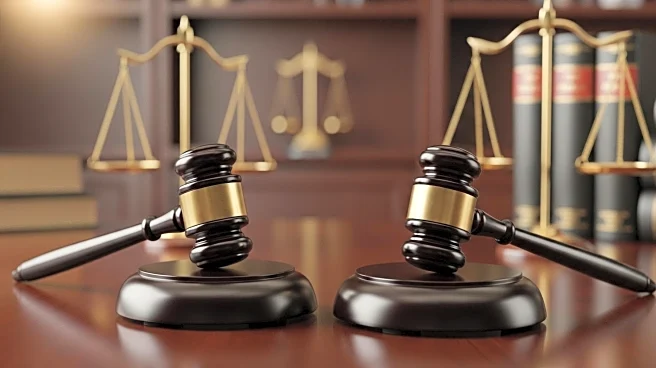What's Happening?
Former U.S. Solicitors General Elizabeth Prelogar and Noel Francisco discussed the implications of the Supreme Court's increasing use of unsigned emergency rulings. Prelogar emphasized that these rulings, despite their brevity, can serve as precedent and influence future judicial decisions. Francisco noted the importance of lower courts recognizing patterns in these rulings to avoid repetitive challenges. The discussion highlighted the challenges faced by litigants and lower courts in interpreting the Supreme Court's intentions from these orders.
Why It's Important?
The rise in emergency rulings by the Supreme Court reflects the urgent nature of contemporary legal challenges, often linked to significant political and social issues. These rulings can have profound impacts on U.S. legal precedents, shaping the judicial landscape and influencing public policy. The discussion by former solicitors general underscores the need for clarity and consistency in judicial processes, affecting how laws are applied and interpreted across the country.
What's Next?
As emergency rulings continue to proliferate, there may be calls for greater transparency and detailed reasoning in Supreme Court decisions. Legal experts and policymakers might advocate for reforms to ensure that these rulings are clearly understood and effectively integrated into the broader legal framework. The ongoing dialogue among legal professionals could lead to changes in how emergency petitions are handled, potentially influencing future court procedures.
Beyond the Headlines
The discussion raises broader questions about the balance between judicial efficiency and thorough legal reasoning. It highlights the ethical considerations in issuing rulings that can alter the status quo without comprehensive explanations. The trend may prompt debates on the role of the judiciary in addressing urgent societal issues and the potential need for procedural adjustments to accommodate the fast-paced nature of modern legal challenges.









